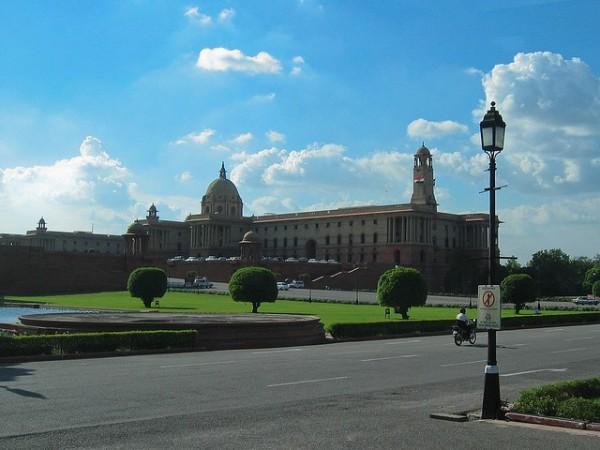
The Monsoon session of Parliament began on a stormy note on Monday with the Telangana statehood issue and demand for creation of new states including Bodoland disrupting both Lok Sabha and Rajya Sabha, hinting that the days ahead will be tough for the central government.
The Congress-led UPA government has an array of bills - 44 in all, to be passed in 16 working days of the session. The bills include the controversial Land Acquisition and Rehabilitation and Resettlement Bill, Lokpal and Lokayuktas Bill and National Food Security Bill.
Here are five most controversial bills the government will try to push through this session:
1) National Food Security Bill: The National Advisory Council (NAC) proposed National Food Security Bill based on the finding of the National Family Health Survey 2005-06 which revealed that 22 percent of India's population is undernourished.
The government introduced the bill in the Lok Sabha in the winter session with an aim to provide food and nutritional security to citizens by making sure that the poor have access to food at affordable prices. It aims to cover up to 75 percent of rural and 50 percent urban population. The government passed the ordinance on Food Security in July and was duly signed by the President of India Pranab Mukherjee after it could not be passed in the budget session of Parliament.
2) Land Acquisition and Rehabilitation and Resettlement Bill, 2011: The controversial Land Acquisition Bill is to provide a fair compensation and rehabilitation to land owners in both rural and urban areas for the land acquired for developmental projects. It was introduced in Lok Sabha on 7 Sept, 2011, and tabled it in the budget session but the government could not push it through.
3) Lokpal and Lokayuktas Bill 2011: The Union Cabinet has cleared the revised Lokpal Bill, meant to check corruption in the country. The move came after anti-corruption activist led by Anna Hazare held a series of protests to force the government pass a strong bill to check corruption.
The revised bill has incorporated 14 of the 16 amendments recommended by the Rajya Sabha Select Committee, which was constituted after the draft bill failed to gather support in the Upper House of Parliament.
According to the amended draft, every state should have a Lokayukta within a year from the day the government passes the bill. The appointment of the Lokayukta has been left to the states and and people affiliated with political parties can't be a part of the Lokpal panel. The Central Bureau of Investigation (CBI) has been kept out of the Lokpal ambit but it will be under the Lokpal supervision. The much-delayed bill could not be passed in the budget session.
4) The Right to Information (Amendment) Bill, 2013: The cabinet has approved the move to amend the Right to Information (RTI) Act to keep major political parties outside the ambit of the transparency law. It is reported that the government wants to keep all the recognised political parties out of the jurisdiction of RTI after the Central Information Commission (CIC) claimed that the central government has been funding six national parties namely Congress, BJP, NCP, CPI-M, CPI and BSP.
5) The Parliament (Prevention of Disqualification) Amendment Bill, 2013: In May, the Union Cabinet approved for amendments in the Parliament (Prevention of Disqualification) Act, 1959, by introducing a bill in Parliament, namely, the Parliament (Prevention of Disqualification) Amendment Bill, 2013.
With the bifurcation of the National Commission for the Scheduled Castes and Scheduled Tribes, consequential amendments are required in sub-clause (ii) of clause (ba) of section 3 of Parliament (Prevention of Disqualification) Act, 1959, so as to exclude the Chairperson of the National Commission for the scheduled castes and the Chairperson of the National Commission for the scheduled tribes from incurring any disqualification for being chosen as or for being a Member of Parliament, the government had said in a statement.
















